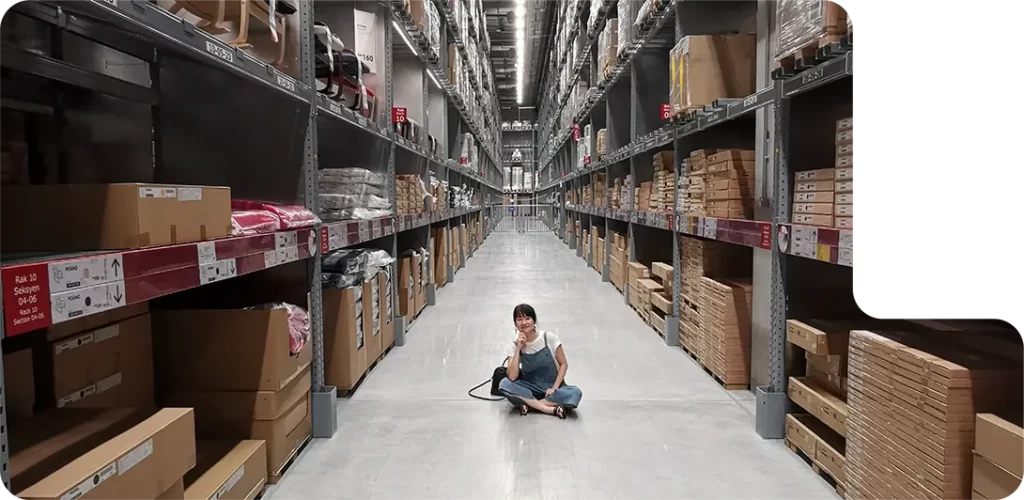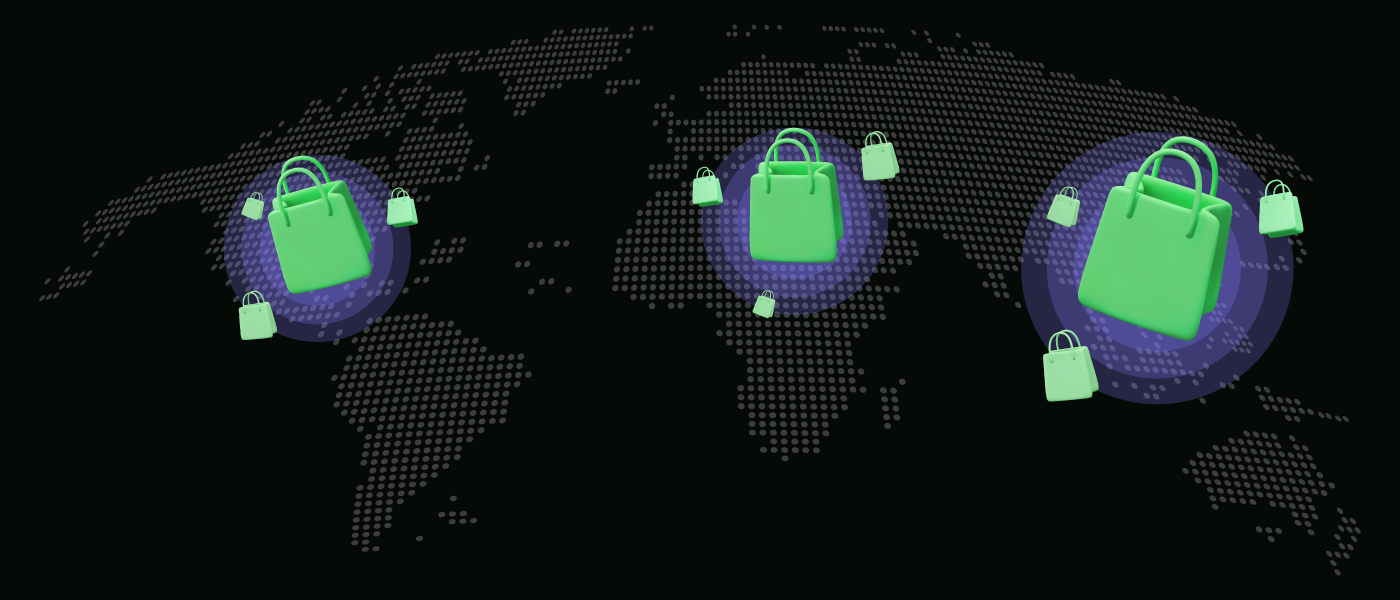Singapore is the second busiest container port in the world. International sales presents prime opportunities for businesses starting out in Singapore. But at the same time, they also raise significant challenges when it comes to understanding the legal requirements pertaining to importing goods into Singapore.
This article will explore the prerequisites you need as an emerging e-commerce business in Singapore, what you need to know and important partnerships you need to forge to make import as seamless as possible.
Setting Up Your Business – Getting a Singapore Registration
.Getting a Singapore e-commerce registration can seem daunting at first glance. However, it is not at all so. Infact, it involves only five steps that you need to remember. Mentioned below is a list that highlights the same.
- You need to review and understand Singapore’s company registration requirements. This might include having a minimum number of one shareholder for your business, having at least one director and company secretary who are residents of Singapore, and having a properly registered address in Singapore.
- Once you have checked all these boxes, you move on to the next step, determining the corporate structure and collecting all the necessary documents for your business. This involves keeping track of the identification and background information of your company’s proposed shareholders and directors.
- The third step is to obtain approval for your company’s name. While choosing the name, you must follow the guidelines as laid down by Singapore company law. This ensures that the name is quickly processed for approval.
- Moving forward to the fourth step, you must prepare certain documents and get them signed and filed with Accounting and Corporate Regulatory Authority (ACRA). The necessary documents include the company constitution, consent of each company director, a declaration by the controllers of the said company, and permission of the company secretary.
- Once all these documents have been checked and signed, you can successfully register your business with ACRA. The process will take up to only an hour and is sometimes even conducted online, according to the requirements.
After a company successfully registers, it is assigned a Unique Entity Number or UEN. This particular stage is crucial since it is the only number through which government agencies identify registered companies. ACRA will also generate two official documents: the e-certificate of incorporation and the business profile. The e-certificate of incorporation will contain your UEN alongside the date of incorporation. It is an official electronic document that verifies the registration of a company in Singapore.
The business profile, on the other hand, is a document containing the company’s corporate structure. Therefore, it includes all kinds of related information, such as primary business activity, registered address, shareholding structure, and details of the shareholders and directors.
You can download both these documents quite easily from the online portals available. Upon receiving the same, you can then start conducting an e-commerce business in Singapore.

Choose Your Overseas Supplier
Selecting an overseas supplier can raise several issues if you do not do it adequately. However, thorough research and proper planning can avoid all the problems and ensure a smooth process. Consider several factors before selecting your overseas suppliers. Let’s take a look at those factors.
- Shortlist Potential Suppliers
- Assessment of the selected suppliers against reliability, quality, and value for money.
- Visiting suppliers or keeping in touch with them to see how they operate
- Taking the final decision on which of the suppliers to work with.
You must consider a few additional factors while dealing with an overseas supplier. For example, one of the most common problems faced by business owners is language differences. Although it undoubtedly plays a huge role in communication, you must also ensure that all labeling and printed materials are error-free.
Yet another common problem faced during overseas import is the payment method. Importers must take proper care while selecting any particular mode of payment, such as a Letter Of Credit, Advance Payment Receipt, or Documentary Collection.
It can be constructive to boost a smooth business interaction if you have a basic understanding of the business and social practices followed in the supplier’s country. This can help to build trust and develop long-lasting relationships.
Lastly, you need to keep track of the origin of their products, that is, their raw materials, since it can directly impact the level of duty they pay. So if you are considering selecting an overseas supplier, you need to check where the raw materials of your goods come from. You achieve this by visiting your suppliers in person.
Receive a Sample Product and Quality Check
After you shortlist your suppliers, the next step is to ask them for a written quotation. A supplier quotation is a written promise stating that the said person will supply the goods or services at the specified price and within the specified time. It also includes warranties, sales terms, payment terms, and insurance and transportation costs. Once all these are complete, and you are satisfied with the price, quality, and terms of service the supplier offers, you can ask for a sample product to ensure that they can produce what you need.
Work with a Freight Forwarder to Understand the Costs of Importing Your Product
Freight forwarders are agents responsible for managing the international shipment of merchandise. But why are they so important? This is because, with the help of their experience and knowledge of varying freight rates, they can offer you the best package deal. Here’s a list of some of the main functions of freight forwarders. A freight forwarder-
- Gives advice on all export costs, including freight costs, merchandise costs, documentation costs, and port expenses, among others.
- Plans the perfect route for a shipment based on the nature of the goods, cost, time, and safety.
- Keeps in touch with insurance, for transportation of merchandise, on behalf of the client.
- Handles customs agents abroad to ensure that the goods and documents comply with customs regulations.
- Allows real-time tracking of your goods with the help of internet technology and satellite systems.
- Acts as a middleman in customs negotiations worldwide to guide the cargo efficiently.
Before deploying a freight forwarder in your company, it is vital that you, as a business owner, understand the various costs involved to save up on both time and money.
Typically, in shipping, eight factors ultimately decide what your total cost is going to be. They are cargo type, weight and volume, packaging, container costs, carrier costs, documentation fees, insurance costs, and administrative charges. Having a basic understanding of all these factors will not only help you deal accordingly with your forwarding agents, but you can also reduce certain additional costs.
Cargo type, for example, refers to the nature of the product you are importing. If your product is perishable or hazardous by nature, the price will automatically increase since you will require a particular type of container to store the product. Simultaneously, the weight and volume of your shipment also play an essential role. For example, light goods that can take up a lot of space cost more than minor and dense goods.
Negotiate With Your Supplier Considering Incoterms
Incoterms are one of the critical elements in building solid and transparent contacts for your business, which will further ensure proper communication and expectations in case of disruptions. The conditions or rules laid down by Incoterms are followed worldwide, in both international and domestic markets, to sell the sale of goods. Especially for businesses that deal with global operations, misunderstandings and discrepancies in the flow of goods can be successfully avoided with the help of Incoterms.
Deciding which Incoterms to use is also very important for sellers and buyers to access specific practical capabilities of their carriage partners. Business experts suggest that having at least one supplier is crucial since it can sometimes be risky to put all the responsibilities on a single supplier alone.
For example, you should maintain a good relationship with a local supplier, who will act as a backup in cases of discrepancies. This is because, since your international supplier is physically so very far away, the chances of risks are more in times of disruptions.
Negotiating and signing a contract with your supplier with a clear understanding of the risks and responsibilities is also imperative. This will ensure that your business is protected, especially during disruptions.

Compare Sea and Air Freight Options
Air freight and sea shipping are two of the most popular methods used worldwide to ship goods across continents. However, both of them have their own set of advantages and disadvantages. If you are unsure which one to choose, do not worry, we are here to help you with the same. Check out this list of pros and cons of both modes to make a well-informed decision for your business.
Cost
In cases of air freight, you can generate the total amount through the chargeable weight, which you can calculate by combining the weight and size of the shipment. In ocean shipping, on the other hand, the billing is done with a container, which means that an entire container of the standard size will have a flat rate. Businesses dealing with large and heavy shipments can benefit from shipping via ocean since the cost is much less expensive than air freight.
Speed
It is well-known that any shipment via air will undoubtedly reach much faster than ocean shipping. If you follow the ocean shipping mode, it can take weeks for your shipment to arrive. However, you can do the same through the air within just a few days. Although ships are now getting faster, it still has not been able to beat the speed of air freight.
Reliability
Perhaps one of the most critical factors of any mode is its reliability. Certain aspects come into play when comparing the reliability of both these modes. Situations such as unfavorable weather conditions can disrupt airline schedules far more quickly than ocean shipments. However, flights are usually rearranged or rescheduled much more promptly and efficiently.
That said, it does not necessarily mean that air freight is more reliable than ocean shipping. This is because the carrier alliance can build more reliability for ocean service. However, this increased reliability can come at a great cost.
In some cases, the said alliances can actually cause complications. This is because every carrier has its own set of rules and regulations that it follows. So even if you are shipping the same product on the same vessel, any change in the carrier who is in charge can lead to a denial of your products.
If you are still in doubt about which shipment mode to choose, it is best to first evaluate the estimated time within which you need your goods to arrive, your budget, and how each of these modes will affect your top needs.
If you have a fast-approaching deadline for your shipment, you should go for air freight. Simultaneously, if there is no urgency in the shipment date, and you want to save up on money, ocean shipment can be the best option.
Prepare and Send All Documentation
Usually, Customs Act, Goods, And Services Act, and Exports Act administrate the imports of goods and services to Singapore.
Obtaining a Customs Import Permit is crucial for importers who want to do business in Singapore. You can receive the same by appointing a declaring agent who will collect the permit on his behalf or by simply appointing himself as the declaring agent to get the permit. Following this, importers also need to ensure that they have other supporting documents such as invoices, the packing list, air waybill, and more. All these are essential for cargo clearance at the entry point. This holds true for both containerized cargo and conventional cargo.
Last but not least, as an importer, you must retain all these documents required for the import of goods for at least five years, starting from the date of the customs permit. You can store them as physical copies or images. Singapore Customs might ask you to present these documents at any given time.
Track Your Goods for Arrival
Shipping carriers usually assign each parcel a unique tracking number of monitoring the package worldwide. Once you have identified the carrier based on the tracking number, you can easily view their website for tracking information.
Some of the most popular companies for international shipments include DHL, UPS, and USPS.
Various Taxes and Permits Required to Import to Singapore
As per the World Bank, Singapore is one of the easiest countries to run a business in. Needless to say, it is growing in popularity, especially among foreign traders, not only because of its advanced infrastructure but also because of the clearly defined export and import regulations. If you, as a business owner, are thinking of doing business in Singapore, then you need to consider the following points.
The Customs Act, GST Act, and Regulations Of Imports And Exports Act usually deal with importing goods to Singapore. Typically, there’s a GST of 7% on all imported goods entering Singapore. This is applicable for goods with a total value of S$400 and above. For non-dutiable goods, the GST is calculated based on the CIF value, accompanied by other incidental charges or commissions.
You can divide dutiable goods into four categories: intoxicating liquor, tobacco products, motor vehicles, and petroleum items. The custom and excise duties usually differ based on the nature of the imported goods to Singapore.
Furthermore, all importers will need to pre-register for an importer account and set up an Interbank GIRO account with Singapore Customs. This can either be done with the help of a declaring agent or yourself after you appoint yourself as the declaring agent.
Finally, the Custom Permit is another crucial step before importing goods to a Singapore e-commerce. As stated earlier, you need to collect your Custom Permit either with the help of a declaring officer or by yourself. The cost of each permit application is typically around S$2.88. However, this does not include the service charge of your declaring agent.
Freight forwarding companies in Southeast Asia
Locad: Locad is a B2B e-commerce platform that offers freight forwarding services to help businesses ship their products from and within Southeast Asia. Locad has a team of experienced freight forwarders who can help businesses choose the best shipping solution for their needs and track their shipments.
DHL: DHL is a leading global logistics company that offers a variety of freight forwarding services, including air freight, ocean freight, and customs clearance. DHL has a strong presence in Southeast Asia, with offices in all major cities.
FedEx: FedEx is another leading global logistics company that offers a variety of freight forwarding services. FedEx also has a strong presence in Southeast Asia, with offices in all major cities.
UPS: UPS is another leading global logistics company that offers a variety of freight forwarding services. UPS also has a strong presence in Southeast Asia, with offices in all major cities.
CWT: CWT is a global travel management company that also offers freight forwarding services. CWT has a strong presence in Southeast Asia, with offices in all major cities.











